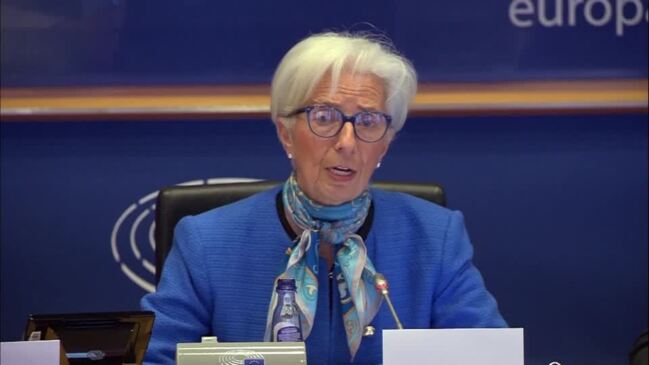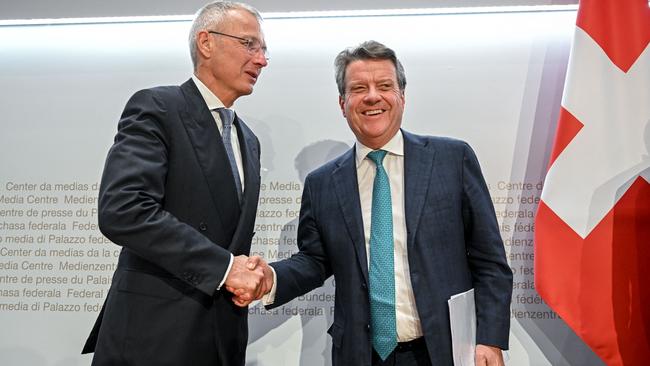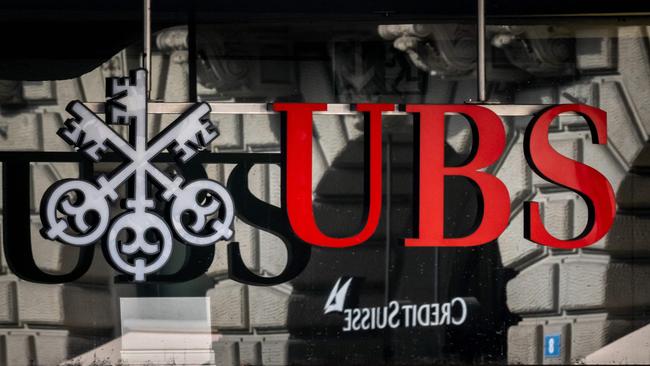Recruiters move on the creme of the Credit Suisse crop as rivals attempt to lure customers away
Rival investment banks have started interviewing Credit Suisse Australia staff for roles, and players in the wealth industry are trying to poach its customers.

Rival investment banks have started interviewing Credit Suisse Australia staff for roles as employees seek out certainty over their future, while competitors in the wealth industry are trying to dislodge customers from the private bank.
Industry sources told The Australian it was a tense time at Credit Suisse locally as the firm waited on key decisions to filter down from UBS’s head office on how the takeover would look across particular markets. At least one rival firm has started interviewing local Credit Suisse equities trading and sales staff as employees scour the market for other roles, against the backdrop of limited industry hiring.
In a dramatic chain of events, UBS agreed to buy Credit Suisse for more than 3bn Swiss francs ($4.8bn) in Switzerland over the weekend, in an emergency transaction pushed by the Swiss government and regulators.
UBS chairman Colm Kelleher earlier this week said the firm would “de-risk and downsize” Credit Suisse’s trading operations, putting the bulk in a separate non-core division.
UBS has a large trading and investment banking advisory business in Australia, suggesting it may just pick and choose a small number of Credit Suisse employees from those areas to go across. Many longstanding Credit Suisse Australia employees are holding out for redundancy payments, pending the deal’s completion.
Credit Suisse has more than 300 local staff across its investment banking and private wealth operations.
A Credit Suisse spokeswoman declined to comment.
Employees are mindful that UBS also told analysts this week that it expected the Credit Suisse transaction would deliver annual run-rate cost reduction of more than $US8bn ($12bn) by 2027.
One head of equities in this market said several large customers were instructing his firm not to interact with Credit Suisse in non-exchange-based trading, or off-market trading, despite the UBS takeover being in progress.
“These clients still feel like there is counterparty risk,” he said on the basis of anonymity.

The latest ructions in global banking markets, which led to the demise of Credit Suisse and three mid-sized US banks which collapsed earlier this month, have spurred increased funding costs for Australian banks and immense volatility in bond markets.
“While we see our banks as defensive, we expect more competition for stable deposits given their importance in the funding mix and rising wholesale funding costs,” Macquarie Capital analysts said in a report on Tuesday. “AT1 (additional tier one security) spreads have widened following recent market instability, as debt investors re-evaluate potential risks associated with these.”
The forced takeover of Credit Suisse saw 16bn in Swiss franc additional tier-one bonds written down to zero, ricocheting through bank bond markets.
In the high-net-worth part of the Australian market, players are closely monitoring what happens to Credit Suisse’s lucrative private bank.
It is estimated to have more than $28bn of assets under advice, and sources close to the business said the division’s annual revenue was in the order of $150m.
But outflows from the Credit Suisse private bank are believed to amount to $1bn over the past week, as customers moved funds out amid the global banking panic. It is unclear if the outflows reflect customer cash holdings or investments.
The past week’s outflows have, however, offset the firm’s inflows since the start of the year, but Credit Suisse and UBS are hopeful some of the funds leaving may return as the dust settles on the takeover.
Competitors are also stepping up attempts to lure Credit Suisse’s private banking customers and trying to capitalise on uncertainty around the UBS transaction, and the fact the deal will take some months to complete.
One Credit Suisse private banking customer told The Australian, on the basis of anonymity, they had been contacted by Morgan Stanley Wealth Management to gauge their interest in moving their funds across.
An industry participant said Credit Suisse would have a “tough task” ahead to retain the assets under advice, particularly as some firms would also target hiring its bankers and advisers.

“Every (wealth) firm has got some of them (Credit Suisse private bankers) in their line of sight. The major players are looking at cherrypicking the best.”
While parties such as National Australia Bank have flagged interest in running a rule over the Credit Suisse private bank should it come on the market, some operatives at UBS Australia are said to be in favour of retaining it. The UBS decision making will be done in Zurich and wealth management is a major focus for the firm globally, even though it doesn’t have a presence in the Australian market.
Credit Suisse’s private bank in Australia should be attractive to UBS given the growth in the nation’s wealth sector and superannuation pool. Another reason is Credit Suisse’s private bank operates on a salary and bonus model for staff, unlike the bulk of other businesses here that split share-trading commissions with advisers.
Credit Suisse moved away from the commission grid payments in 2011 after deciding internally those payments reflected conflicted renumeration, and could become unsustainable as the private bank expanded.
UBS exited the wealth market in Australia in 2015-16 when executive Mike Chisholm led the buyout of the business and renamed it Crestone. That business was, however, on a commission-based model which weighed on its profitability and eventually triggered UBS’s retreat.
Crestone’s staff and shareholders sold the business to private wealth giant LGT Group in mid-2022.
The UBS and Credit Suisse tie-up creates a dominant global wealth manager with $US5 trillion of invested assets.
In Australia, the big four banks all operate private banking businesses while NAB also houses private wealth and stockbroking division JBWere.
Melbourne-based Escala Partners, Koda Capital, Morgan Stanley Wealth Management and Shaw and Partners are other notable players in the domestic private wealth sector.




To join the conversation, please log in. Don't have an account? Register
Join the conversation, you are commenting as Logout